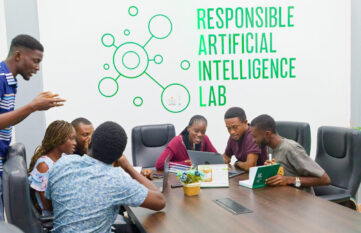of all 4.5 billion internet users live in countries where people have been attacked or killed for their online activities since June 2021.

Digital transformation for human rights standards and principles
Digital transformation offers great potential for respecting, protecting, and fulfilling human rights all over the world. The internet offers endless opportunities for the realisation of the right to information. Social media are a powerful tool for organising peaceful protests and realising political rights, especially in autocratically governed states. E-learning tools have helped governments fulfilling the right to education in times of pandemic. Digital technologies provide a wide range of opportunities for inclusive societal participation and can facilitate access to political and civil rights as well as to economic, social and cultural rights.
Most notably, marginalized groups such as LGBTQI+ persons, indigenous peoples or persons with disabilities as rights holders can benefit from the advantages of digital transformation. Digital tools make it easier for them to obtain information, network and participate in political decision-making processes. Governments can use digital opportunities to meet their state obligation to fulfil human rights, such as the right to health or the right to education. Digitalisation is thus becoming a more and more important instrument for human rights-based development cooperation.
Human rights apply equally online and offline. Yet, human rights violations in the digital realm are increasing significantly. Human rights defenders and media professionals are severely affected by online censorship, surveillance, and internet shutdowns. Women in all their diversity and children are frequently exposed to cyber violence. Algorithms can maintain or reinforce existing discrimination. Most human rights violations are not restricted to the digital sphere but have severe real-life implications for the affected individuals.
of one million websites analysed worldwide are not accessible to persons with disabilities.
of all website content is in English. Only 19% of the world’s population is English-speaking.
While digitalisation offers unprecedented opportunities for realising the right of access to information, it can also become an amplifier for hate speech and misinformation. Social media can be used to uphold the right to freedom of assembly, but they can also enable mass surveillance, violate protesters’ right to privacy, and incite offline violence. E-learning platforms can promote the right to education, and at the same time discriminate against children who have no or only limited access to the internet.
Together with our partners, we must strive for digital transformation based on human rights. The human rights-based approach is a guiding principle of German development cooperation and applies to all digital project activities. We support governments as duty-bearers to make digital transformation participatory, non-discriminatory, transparent and accountable. People, in particular marginalised persons, are empowered to claim their rights in the digital realm.
Projekte
Digital Rights Check
The Digital Rights Check is a human rights assessment tool and guidance meant for staff and partners working in technical development cooperation and in development finance, who are working on digital projects or are otherwise using digital solutions.
Read moreDigital Enquirer Kit Youth
DThe DEK Y is a self-study course that teaches children and youth how to identify misinformation, find, analyse reliable information online, and share it all in a secure way. The online training consists of six bite-sized lessons and is available in seven languages. It is accessible on a cookie-free website and via an offline version.
Read more





